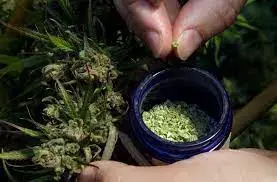- Home
- Medical news & Guidelines
- Anesthesiology
- Cardiology and CTVS
- Critical Care
- Dentistry
- Dermatology
- Diabetes and Endocrinology
- ENT
- Gastroenterology
- Medicine
- Nephrology
- Neurology
- Obstretics-Gynaecology
- Oncology
- Ophthalmology
- Orthopaedics
- Pediatrics-Neonatology
- Psychiatry
- Pulmonology
- Radiology
- Surgery
- Urology
- Laboratory Medicine
- Diet
- Nursing
- Paramedical
- Physiotherapy
- Health news
- Fact Check
- Bone Health Fact Check
- Brain Health Fact Check
- Cancer Related Fact Check
- Child Care Fact Check
- Dental and oral health fact check
- Diabetes and metabolic health fact check
- Diet and Nutrition Fact Check
- Eye and ENT Care Fact Check
- Fitness fact check
- Gut health fact check
- Heart health fact check
- Kidney health fact check
- Medical education fact check
- Men's health fact check
- Respiratory fact check
- Skin and hair care fact check
- Vaccine and Immunization fact check
- Women's health fact check
- AYUSH
- State News
- Andaman and Nicobar Islands
- Andhra Pradesh
- Arunachal Pradesh
- Assam
- Bihar
- Chandigarh
- Chattisgarh
- Dadra and Nagar Haveli
- Daman and Diu
- Delhi
- Goa
- Gujarat
- Haryana
- Himachal Pradesh
- Jammu & Kashmir
- Jharkhand
- Karnataka
- Kerala
- Ladakh
- Lakshadweep
- Madhya Pradesh
- Maharashtra
- Manipur
- Meghalaya
- Mizoram
- Nagaland
- Odisha
- Puducherry
- Punjab
- Rajasthan
- Sikkim
- Tamil Nadu
- Telangana
- Tripura
- Uttar Pradesh
- Uttrakhand
- West Bengal
- Medical Education
- Industry
Cannabis use linked with CVD risk factors: Study

CVD risk factors are associated with cannabis use, according to recent study published in the the American Journal of Cardiology.
A group of researchers hypothesized that cannabis use is associated with cardiovascular disease (CVD) risk factors. This could explain the reported link between cannabis and cardiovascular events including stroke and myocardial infarction.
This analysis included 7,159 participants (age 37.8 ± 12.4 years, 48.6% men, and 61.5% Caucasian) from the National Health and Nutrition Examination Survey years 2011 to 2018. Cannabis use was defined by self-report. Participants with a history of stroke or myocardial infarction were excluded. Composite CVD risk was assessed using the American College of Cardiology/American Heart Association 10-year atherosclerotic cardiovascular risk (ASCVD) score. Participants were classified based on their ASCVD risk levels as low (<5.0%), borderline (5.0% to 7.4%), intermediate (7.5% to 19.9%), and high (≥20.0%). Multinomial logistic regression was used to examine the association between cannabis use and ASCVD risk category using low-risk ASCVD category as the reference level.
The results of the study are:
About 63.9% (n = 4,573) of participants had ever used cannabis. Ever cannabis use was associated with 60% increased odds of high-risk ASCVD score (odds ratio [OR] 95% confidence interval [CI] 1.60 [1.04 to 2.45], p = 0.03). We also observed a dose-response relation between increased use of cannabis and a higher risk of ASCVD. Those reporting ≥2 uses per month had 79% increased odds of high-risk ASCVD score (OR [95% CI] 1.79 [1.10 to 2.92], p = 0.02) and those reporting ≥1 use per day had 87% increased odds of high-risk ASCVD score (OR [95% CI] 1.87 [1.16 to 3.01], p <0.001].
Thus, the researchers concluded that cannabis use is associated with elevated CVD risk. Individuals using cannabis should be screened for CVD risk, and appropriate risk reduction strategies should be implemented.
Reference:
Relation of Cannabis Use to Elevated Atherosclerotic Cardiovascular Disease Risk Score by Travis M. Skipina, et al. published in the American Journal of Cardiology.
https://www.ajconline.org/article/S0002-9149%2821%2901103-6/fulltext
Dr. Shravani Dali has completed her BDS from Pravara institute of medical sciences, loni. Following which she extensively worked in the healthcare sector for 2+ years. She has been actively involved in writing blogs in field of health and wellness. Currently she is pursuing her Masters of public health-health administration from Tata institute of social sciences. She can be contacted at editorial@medicaldialogues.in.


